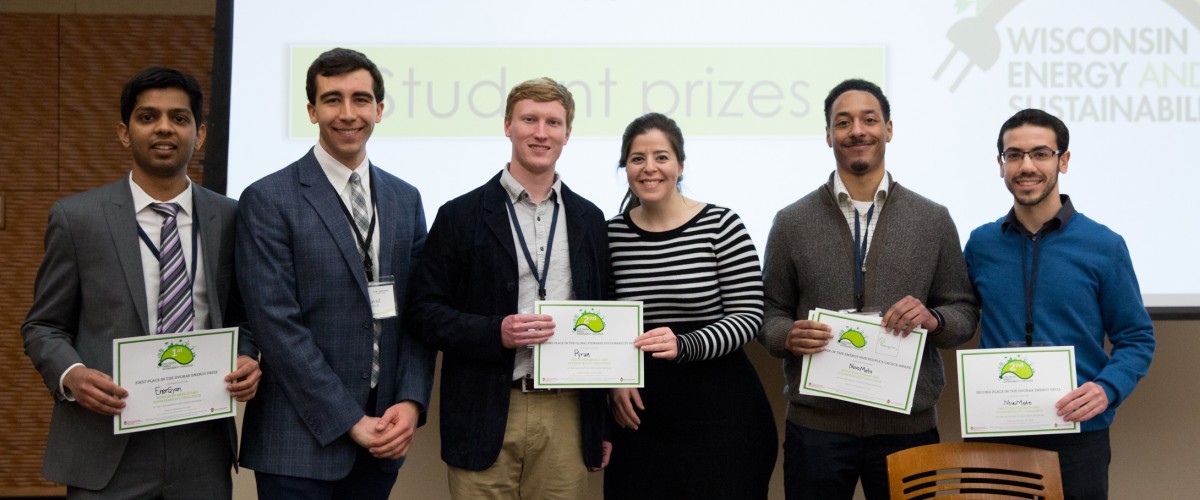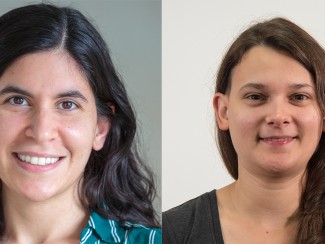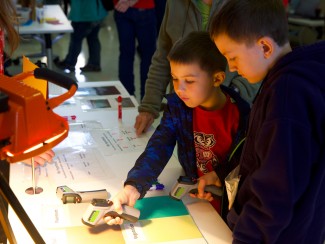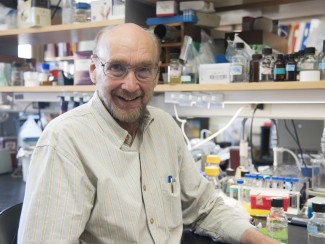
Entrepreneurial students at the University of Wisconsin–Madison recently took home cash prizes for new innovations in energy technology and environmental sustainability.
Participants in the Wisconsin Energy & Sustainability Challenge (WESC), all current or former students in the UW–Madison College of Engineering, presented their ideas at the Energy Hub Conference on Friday, February 23, for a chance of winning the Dvorak Energy Prize, which recognizes excellence in developing a technology applicable to energy, and the Global Stewards Sustainability Prize, which rewards ideas with an environmental or sustainability focus.
The annual competition pushes students to develop concrete ideas, including complete technical and business plans, that have the potential to transform the way we use energy and natural resources. The following student teams took this year’s honors:
First place winners of the $5,000 Dvorak Energy Prize were Ashray Manur and David Sehloff for “EnerGyan.” EnerGyan is a modular and intuitive hardware and software platform to educate students in high school and college programs in the next generation of energy systems. EnerGyan’s “electricity grid-in-a-box” is the first of its kind, enabling users to learn about energy from writing simple programs to control and manage their own energy system.
Aaron Olson of NovoMoto took first place in the $5,000 Global Stewards Sustainability Prize and second place in the $1,000 Dvorak Energy Prize. NovoMoto, NovoMoto, which Olson co-founded with recent PhD graduate Mehrdad Arjmand, is a for profit social enterprise that is providing clean, renewable, and sustainable electricity to communities in the Democratic Republic of Congo. NovoMoto combines quality solar products, a locally sourced distribution and service network, and an innovative customer financing model to make significant social impact. Olson and Arjmand also took the $250 Energy Hub People's Choice Award.
Kevin Barnett and Merve Ozen of Pyran took second place in the Global Stewards Sustainability Prize, winning $1,000. Pyran has developed chemical reaction technology to produce the chemical 1,5-pentanediol from renewable wood and crop wastes, providing a low-cost and renewable means of producing a chemical currently used to make everyday paints and plastics.
Co-hosted by the Wisconsin Energy Institute and the Nelson Institute for Environmental Studies Center for Sustainability and the Global Environment, WESC is supported by the Dvorak family and the Global Stewards Society.





